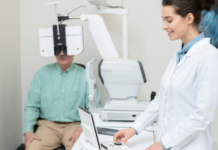New Delhi, November 25, 2018: Chronic Endometritis (CE) is a persistent inflammation of the endometrial lining, caused by infection of the uterine cavity, mainly by bacterial pathogens. Because it is usually asymptomatic, and current classical diagnosis methods (histology, hysteroscopy and microbial culture) are unsatisfactory, CE is often overlooked, although it affects approximately 30% of infertile women, and its prevalence in patients with RIF and Recurrent Pregnancy Loss (RPL) could reach up to 60%.
A recent study carried out by Igenomix, a company that provides advanced services in reproductive genetics has demonstrated that molecular assessment of CE is feasible, is a faster cheaper method for the diagnosis of CE as compared with the classical methods and should be considered as a way of improving detection of this often-undiagnosed endometrial pathology.
“ALICE (Analysis of Infectious Chronic Endometritis), detects the most frequent bacteria that cause CE. This expands the service offered by Igenomix, to evaluate the endometrium factor at the microbiological level, with the aim of improving the clinical management of patients with this silent disease.” Says Dr. Rajni Khajuria, Ph.D, Laboratory Manager Of IGENOMIX India.
ALICE can be beneficial for any patient wishing to conceive, by assessing the microbiological environment that the embryo will encounter at implantation. ALICE may also be beneficial for patients with a history of RPL and/or RIF, because CE has been linked to these events.
“ALICE uses the latest Next Generation Sequencing technology to provide microbiome information in endometrial tissue by analyzing the levels of specific bacteria that cause CE. The technology is based on DNA extraction followed by amplification and barcoded sequencing of the bacterial 16S ribosomal RNA gene.” further adds Dr. Rajni.
This bacterial gene, conserved in all bacteria, presents nine variable regions with species-specific DNA sequence. This enables the taxonomic assignment and relative quantification of CE bacteria present in a sample.
Furthermore, the ALICE report will focus on the detection and abundance of those specific bacteria that cause CE. These bacteria are: Enterococcus spp., Enterobacteriaceae spp., Streptococcus spp., Staphylococcus spp., Mycoplasma spp, and Ureaplasma spp. In addition, other pathogens associated with sexually transmitted infections (STI), such as Chlamydia trachomatis and Neisseria gonorrhoeae will also be reported.
“The ALICE report will recommend antibiotic therapy for the pathogens that are detected.” Says Dr. Rajni.
Corporate Comm India(CCI NewsWire)























